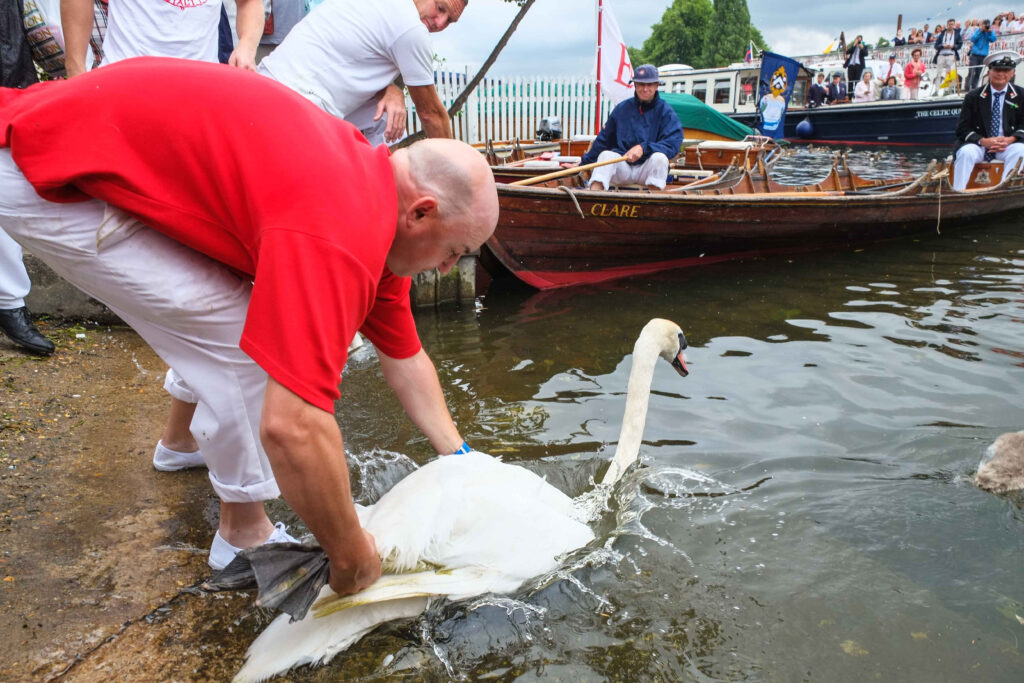Every year, between July 15th and 19th, a 79-mile stretch of the River Thames is the setting for the historic practice of Swan Upping.
Originating in the 12th century, the ceremony involves herding, counting, and conducting health checks on mute swans. Today, it has transformed into a conservation and educational effort to protect the swans against the growing dangers of pollution and injuries from abandoned fishing gear.
The ceremony is conducted by the King’s Swan Marker, accompanied by Swan Uppers from the Vintners and Dyers livery companies. Adorned in traditional scarlet uniforms dating back over 800 years, the Swan Uppers navigate the Thames in skiffs, small boats designed for capturing and inspecting the swans. As they row upstream, they call out “All up” upon sighting a swan family.
Originally, the practice of serving swans at Royal feasts, now it serves as a means to assess the stock available for the Royal table. In Victorian times, swan was considered a delicacy but has since become illegal to consume, as most swans are owned by the King.
Swan Upping is more than a charming tradition; it’s vital for the conservation of mute swans on the Thames. The birds are gently removed from the water, and the cygnets are weighed, measured, and checked for injuries. Each swan receives identification rings on their legs, indicating ownership by the Vintners or Dyers, while any unmarked swans are deemed property of the Crown.
The data gathered at this event is crucial for monitoring the health and population of these majestic birds. Numerous schools are invited to participate, providing children with the opportunity to observe swans at close range.
Fun Fact
Swans are known for their strong pair bonds. They often mate for life, and their loyalty to their partners is legendary. If one swan’s mate dies, the surviving swan can go through a period of mourning and may even stay single for several seasons before finding a new partner.


